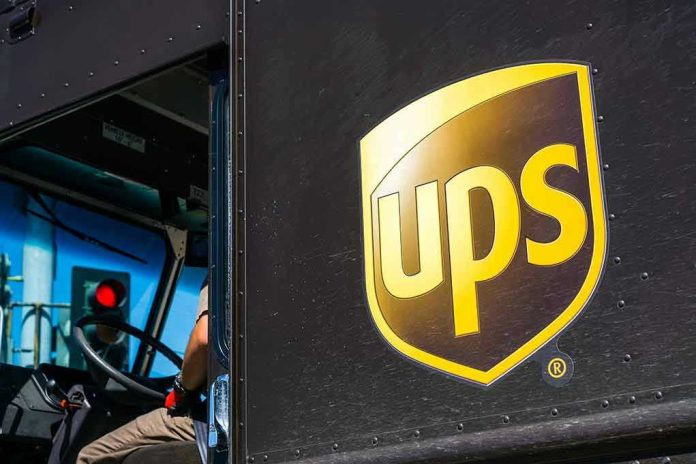
UPS is hitting American customers with crippling, unexplained tariffs—sometimes more than the value of their goods—while offering no clear answers or recourse, exposing the dangers of unchecked bureaucracy and regulatory chaos.
Story Snapshot
- UPS customers across the country are being billed for excessive tariffs, like the 200% Russian aluminum duty, on shipments unrelated to Russia or aluminum.
- Confused and frustrated customers report dead ends and silence from UPS customer service, with some forced to pay just to retrieve their goods.
- Recent changes in U.S. customs policy and a reversal of the de minimis import rule have worsened the crisis, triggering more government involvement and red tape.
- Experts warn this fiasco highlights deep flaws in automated trade compliance and the risks of government-driven overregulation affecting American families and small businesses.
UPS Tariff Misapplication Creates Nationwide Headaches
Thousands of Americans are sounding the alarm after receiving shocking bills from UPS, charging them sky-high tariffs—like the 200% duty on Russian aluminum—despite their shipments having no connection to Russia or even aluminum. This bureaucratic overreach is directly impacting families, small businesses, and everyday consumers, many of whom are left scrambling to find out why they are being taxed on goods that should be exempt. As the 2025 regulatory changes take hold, the number of affected Americans continues to mount, exposing a growing crisis in the shipping industry and a new layer of government-induced confusion.
UPS’s automated customs processing system is at the heart of the mess. Designed to assess and apply tariffs according to federal guidelines, these systems began misclassifying packages as subject to the punitive Russian aluminum tariff—regardless of their real origin or content. Customers report being blindsided by invoices sometimes exceeding the value of their shipments. The 2025 reversal of the de minimis rule, which previously allowed goods under $800 to enter the U.S. duty-free, has only fueled the chaos, requiring more shipments to undergo costly and error-prone customs clearance.
Regulatory Changes and Government Overreach Fuel the Problem
The roots of this fiasco stretch back to 2023, when the U.S. government imposed a 200% tariff on Russian aluminum as part of sweeping sanctions. In August 2025, the Biden-era de minimis rule was rolled back, meaning far more packages—even low-value ones—are subject to formal customs scrutiny and tariffs. These changes, intended as tough-on-trade policy, have instead created a bureaucratic thicket that major carriers like UPS struggle to navigate. Now, Americans are paying the price for a system that prioritizes government revenue and compliance over common sense and customer service.
UPS, acting as a middleman between government customs authorities and the American public, wields enormous control over the fate of inbound packages. When their automated systems go awry, customers have almost no recourse: phone lines go unanswered, support emails vanish into black holes, and appeals for clarification are met with silence or stonewalling. This lopsided power dynamic leaves ordinary Americans at the mercy of giant corporations and shifting government edicts, with little accountability or transparency.
Impact on American Families and Small Businesses
The fallout is immediate and severe. Small businesses, already battered by years of inflation and global supply chain turmoil, now face unexpected costs that can cripple their operations. Individuals trying to import gifts, supplies, or personal goods are hit with surprise bills that are often impossible to contest. Some shipments are returned to sender or destroyed outright, simply because customers cannot afford or refuse to pay the arbitrary charges. The damage extends beyond finances: trust in core American institutions—both private and public—continues to erode as more citizens find themselves powerless against these faceless systems.
Industry experts point to the risks of over-automation and regulatory creep. They warn that unless federal policymakers and shipping giants like UPS restore transparency, accountability, and a customer-first approach, the American people will continue to suffer. Calls are growing for regulatory audits, industry reforms, and a reassessment of policies that favor bureaucracy over freedom and fair play. Without immediate action, this crisis could spread to other carriers and industries, intensifying the threat to American values, free enterprise, and the everyday rights of citizens.
Sources:
Ship with UPS, but the delays & tariffs made me switch (Business Insider)
UPS Erroneously Applies 200% Russian Tariff to Non-Russian Aluminum Imports (WebProNews)
New import tariff rule delivers shock to consumers (Los Angeles Times)














